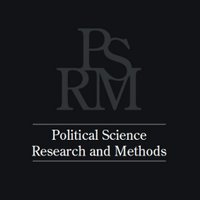
Jay Van Bavel, PhD
@jayvanbavel
Psychology Prof @NYUPsych | author of @PowerOfUsBook & newsletter (powerofus.substack.com) | Director of @vanbavellab | On sabbatical
ID: 285698560
http://www.jayvanbavel.com 21-04-2011 16:34:01
20,20K Tweet
58,58K Followers
1,1K Following


"more intellectually humble people are less likely to share (and believe in) hostile political news—both true and false—attacking political opponents" - Antoine Marie ow.ly/6Jrv50Tlg37


🗣️Using a transformer model to identify moral and moral-emotional appeals, Tobias Widmann & Kristina Bakkær Simonsen show the important role of radical-right challengers in shaping public discourse in a negative moral-emotional direction cambridge.org/core/journals/… #FirstView #OpenAccess



"While Indigenous people with greater personal income were slightly more satisfied with life than those with less income, overall, they were much happier than their Western counterparts even at very low incomes" ow.ly/gzTH50ToCMi via Greater Good


How can speakers connect more deeply with their audience? Here are some key principles from Terry Szuplat a former speechwriter for Barack Obama, from his new book "SAY IT WELL: Advice on How to Find Your Voice, Speak Your Mind, Inspire Any Audience" powerofusnewsletter.com/p/advice-on-ho…


There is a big gap between what goes viral on social media VS what people want to go viral In our new Association for Psychological Science paper people report that divisive content, moral outrage, negativity, and misinformation all go viral. But they want it to stop! doi.org/10.1177/174569…





The idea that people are callous bystanders is one of the biggest myths about #psychology This myth is based on false reporting of the murder of Kitty Genovese and a misunderstanding of the bystander effect in social psychology We debunk it here: powerofusnewsletter.com/p/debunking-po…

As the election heats up, we’re reminded how US politics is growing more divisive & nationalized. Could these trends be linked? Our new PNAS Nexus paper finds national politics uses broadly relevant themes—morality & power—more than local. This engages but also divides people.




